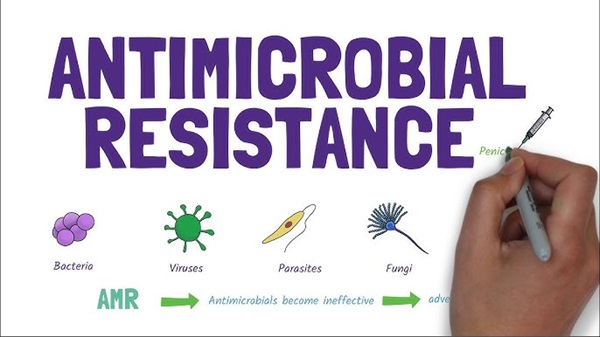
The Nigeria Centre for Disease Control and Prevention (NCDC) has raised alarm over the growing threat of antimicrobial resistance (AMR), warning that it endangers not just human health but also animals, agriculture and the environment.
The director-general of the NCDC, Dr. Jide Idris told journalists in Abuja that the misuse and overuse of antibiotics across sectors are fuelling the spread of drug-resistant infections, putting lives, livelihoods and ecosystems at risk.
“Antimicrobial resistance is a threat not only to humans but to the whole planet,” he said. “Together, we can fight AMR by using antimicrobials responsibly.”
AMR occurs when bacteria, viruses, fungi, or parasites stop responding to drugs designed to kill them. This makes infections harder to treat, results in longer illness, increases healthcare costs, and raises the risk of death.
Idris explained that one of the major drivers of AMR in Nigeria is the indiscriminate access to antibiotics without prescriptions. Other causes include poor infection prevention and control practices and the use of antimicrobials in livestock and poultry without veterinary supervision.
He warned that if current trends continue, many common infections could become untreatable, reversing decades of medical progress.
To address this, the Federal Government, through the NCDC and its partners, is strengthening surveillance, promoting awareness, and adopting a One Health approach, which recognises the interconnectedness of human, animal, and environmental health.
“Nigeria’s National Action Plan on AMR is being updated to guide a coordinated response grounded in evidence, stakeholder engagement and global best practices,” Idris said.
He emphasised the importance of public education, improved laboratory capacity, responsible waste management, and antimicrobial stewardship to combat AMR.
The World Health Organisation (WHO) has warned that if urgent action is not taken, AMR could cause 10 million deaths annually by 2050.
“In Nigeria, experts are calling for a ban on the over-the-counter sale of antibiotics and advising citizens to stop self-medication,” he added.
Idris urged all Nigerians to take responsibility in fighting AMR.
“We must all play our part by using antibiotics only when prescribed and strictly following medical advice,” he said.

